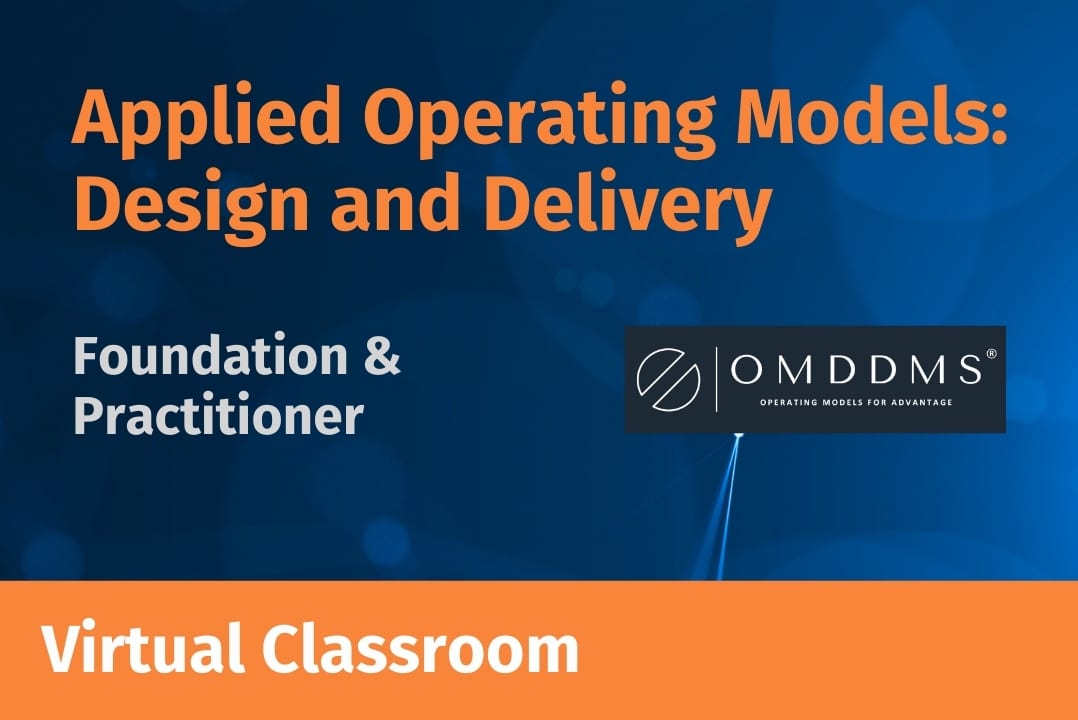Operating model transformation is critical to maintaining organisational resilience and competitiveness. Yet, many organisations struggle to achieve their these. Research shows that up to 70% of transformation initiatives fail due to (a) failure to set fact-based, high aspirations, (b) organisations often fail to attach a compelling “why?” to their effort, (c) poor execution, and (d) fail to sustain the impact that they’ve achieved (McKinsey & Company).
To overcome these challenges, organisations need essential skills such as assessing operating model maturity, understanding transformation impact, and developing a high-level view of organisational processes.
Understanding the Risks of Transformation Failure
Transformation initiatives often fail to deliver results, and the reasons are often:
- Poor governance leaves initiatives without clear direction.
- Lack of maturity assessments results in wasted resources and misaligned priorities.
- Fragmented decision-making delays progress and creates inefficiencies.
These hurdles can derail even the most well-intentioned efforts. However, with the right skills and frameworks, leaders can mitigate these risks and position their organisations for sustained success. This is where the OMDDMS® framework provides a critical advantage.
OMDDMS® is the Operating Model Design Delivery and Management Standard which aims to provide a clear and usable operating model, with a common language (from the OMDDMS® standard), to understand how to design and deliver operating model transformation.
Essential Skills for Driving Effective Transformation
Overcoming transformation challenges requires specific, actionable skills that align strategy with execution.
1. Assessing Operating Model Maturity
Organisations must first understand where they stand. A maturity assessment identifies areas of readiness and highlights priorities, ensuring resources are directed effectively. For example, organisations that assess maturity upfront often experience fewer delays and avoid costly missteps.
2. Understanding Transformation Impact
Transformation affects every part of an organisation. Leaders must be informed and understand the impacts of how changes will impact people, processes, structures, governance, partners, regulation, motivation, and systems to anticipate risks. By using proven frameworks, organisations can ensure smoother transitions and minimise disruptions.
3. Articulating Organisational Changes
Successful transformation depends on clear communication. Leaders must connect high-level strategies to operational details, engaging and collaborating with stakeholders and securing buy-in. Organisations with strong operating model transformation knowledge achieve faster decision-making and greater cohesion.
These skills are the foundation of effective transformation and are integral to the OMDDMS® methodology.

How OMDDMS® Simplifies Transformation Complexity
The OMDDMS® framework offers a structured, repeatable approach to operating model transformation, addressing the very challenges that derail many initiatives.
What Sets OMDDMS® Apart?
- Governance for Success: OMDDMS® provides a clear method and guidelines to design and deliver initiatives that enable the strategy to be met.
- Sustainability: Unlike ad hoc approaches, OMDDMS® embeds practices that ensure adaptability and long-term success.
- Results Focused: OMDDMS® provides the ground rules through an established and repeatable method, guidelines, best practices, principles, and structures.
This framework is designed to make transformation manageable and measurable, equipping leaders with the tools needed to navigate complexity with confidence.
Turn Knowledge into Action with EA Learning
Transformation is only as effective as the people driving it. Our Applied Operating Models: Design and Delivery – Foundation and Practitioner course combines theory and practice, equipping participants with the skills to lead confidently.
Why Choose EA Learning?
- Actionable Insights: Learn how to “know what to do on Monday” with tools and strategies you can apply immediately.
- Certification and Recognition: Earn up to 30 CPD points, digital badges, and gain professional recognition through a searchable certification register.
- Expert-Led Training: Benefit from the guidance of experienced instructors with decades of real-world experience.
Participants leave the course prepared to implement OMDDMS® in their organisations, ensuring their transformation initiatives deliver tangible results.
Master the Skills to Transform with Confidence
Operating model transformation can be essential for organisations to remain agile and competitive. Success demands the right skills, robust methodologies, and actionable strategies.
Through our courses on operating model transformation, which are built around the OMDDMS® standard, we empower leaders to achieve sustainable transformation and drive lasting change.
Take the first step towards proper operating model transformation by learning more about our Applied Operating Models courses, and enrol today to ensure you don’t miss out on upcoming class dates.


 4 day course
4 day course